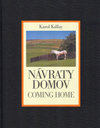
-
 Anglický jazyk
Anglický jazyk
Ming Dynasty painters
Autor: Source: Wikipedia
Source: Wikipedia. Pages: 61. Chapters: An Zhengwen, Bada Shanren, Bian Jingzhao, Cheng Jiasui, Chen Chun, Chen Daofu, Chen Hongshou, Chen Jiru, Chen Lu (painter), Cui Zizhong, Dai Jin, Ding Yunpeng, Dong Qichang, Du Jin, Du Qiong, Eight Masters of Nanjing,... Viac o knihe
Na objednávku, dodanie 2-4 týždne
18.92 €
bežná cena: 21.50 €
O knihe
Source: Wikipedia. Pages: 61. Chapters: An Zhengwen, Bada Shanren, Bian Jingzhao, Cheng Jiasui, Chen Chun, Chen Daofu, Chen Hongshou, Chen Jiru, Chen Lu (painter), Cui Zizhong, Dai Jin, Ding Yunpeng, Dong Qichang, Du Jin, Du Qiong, Eight Masters of Nanjing, Gong Xian, Guo Chun, Gu Zhengyi, Hong Ren, Huang Ji, Ji Sheng, Kun Can, Lan Ying, Leng Mei, Lin Liang, Liu Jue, Liu Jun (painter), Li Shida, Li Zai, Lü Ji (painter), Lu Zhi (painter), Ma Shi, Miao Fu, Ni Duan, Ni Yuanlu, Ni Zan, Qian Gu, Qiu Ying, Shang Xi, Shao Mi, Sheng Maoye, Shen Shichong, Shen Zhou, Shitao, Shi Rui, Song Maojin, Song Xu, Sun Kehong, Sun Long, Tang Yin, Tao Chi (painter), Wang Duo (Ming Dynasty), Wang E, Wang Fu (painter), Wang Guxiang, Wang Lü, Wang Meng (artist), Wang Shimin, Wang Zhongyu, Wen Boren, Wen Jia, Wen Zhengming, Wen Zhenheng, Wen Zhenmeng, Wu Bin (painter), Wu Wei (painter), Xiang Shengmo, Xiao Yuncong, Xia Chang, Xia Shuwen, Xie Huan, Xie Jin (painter), Xie Shichen, Xuande Emperor, Xu Wei, Yang Weizhen, Zeng Jing, Zhang Han (Ming Dynasty), Zhang Lu (painter), Zhang Yan (painter), Zhao Yuan, Zhao Zuo, Zha Shibiao, Zhou Chen, Zhou Wenjing, Zhou Zhimian. Excerpt: The Xuande Emperor (Chinese: , p Xuandédì; 16 March 1399 - 31 January 1435), personal name Zhu Zhanji (¿¿¿), was the fifth emperor of the Ming Dynasty of China from 1425 to 1435. His era name means "Proclamation of Virtue". Born Zhu Zhanji (), he was the eldest son of the Hongxi Emperor and the Empress Cheng Xiao Zhao. Xuande was also fond of poetry and literature. Although he continued to refer to Beijing as the secondary capital on all official documents, he maintained it as his residence and continued to rule there in the style of his grandfather, the Yongle Emperor. He permitted Zheng He to lead the seventh and last of his maritime expedition. Xuande's uncle Zhu Gaoxu, Prince of Han, had been a favorite of the Yongle Emperor for his military successes, but he disobeyed imperial instructions and in 1417 had been exiled to the small fief of Le'an in Shandong. When Zhu Gaoxu revolted, the new Xuande Emperor took 20,000 soldiers and attacked him at Le'an. Zhu Gaoxu surrendered soon afterward. Zhu Gaoxu was reduced to a commoner and died from torture. Six hundred rebelling officials were executed, and 2,200 were banished. The emperor did not wish to execute his uncle at the start, but later events angered the emperor so much that Zhu Gaoxu was executed through fire torture. All his sons were executed as well. It is very likely that Zhu Gaoxu's arrogance, well detailed in many historic texts, offended the emperor. A theory states that when the emperor went to visit his uncle, Zhu Gaoxu intentionally tripped him. The Xuande Emperor wanted to withdraw his troops from Annam, but some of his advisors disagreed. After Chinese garrisons suffered heavy casualties, the emperor sent Liu Sheng with an army. These were badly defeated by the Annamese, losing 70,000 men in 1427. The Chinese forces witehdrew and Xuande eventually recognized the independence of Annam. In the north, the Xuande Emperor was inspecting the border with 3,000 cavalry troops in 1428 and was able to retalia
- Vydavateľstvo: Books LLC, Reference Series
- Rok vydania: 2013
- Formát: Paperback
- Rozmer: 246 x 189 mm
- Jazyk: Anglický jazyk
- ISBN: 9781155714622

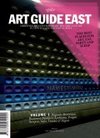
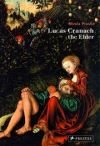
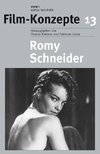


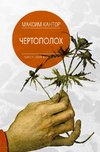
 Ruský jazyk
Ruský jazyk 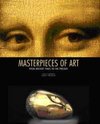
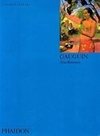
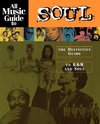
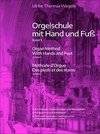
 Nemecký jazyk
Nemecký jazyk 
